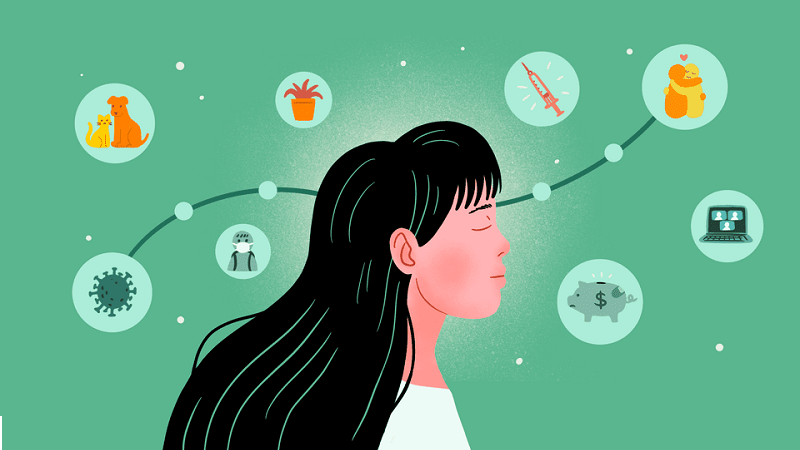10 Signs Of Depression In Men
Posted in Healthy Living
Clinical depression—in women or men—can cause sadness and a loss of interest in once pleasurable activities. But depression can sometimes manifest in different ways in both genders.
Fatigue
People who are depressed undergo a series of physical and emotional changes. They can experience fatigue, as well as psychomotor retardation, or a slowing down of physical movements, speech, and thought processes.
Men are more likely than women to report fatigue and other physical symptoms of depression as their chief complaints.
Stomach ache or backache
Health problems such as constipation or diarrhoea, as well as headaches and back pain, are common in people who are depressed. But men often don’t realize that chronic pain and digestive disorders go hand in hand with depression. People who are depressed do genuinely feel bad physically.
Irritability
Instead of seeming down, men who are depressed often show signs of irritability. If they talk about an emotional component, it could be sadness with irritability. In addition, men will report feeling irritable because they are having negative thoughts constantly.
Difficulty concentrating
Psychomotor retardation can slow down a man’s ability to process information, thereby impairing concentration on work or other tasks.
Depression fills one with negative thoughts, almost like an intrusion. You’re slowed down and constantly thinking about negative things in your world. As a result it makes it very difficult to focus on anything.
Anger or hostility
Some men manifest depression by being hostile, angry, or aggressive, says. A man who realizes something is wrong may need to compensate by demonstrating that he is still strong or capable.
Anger and hostility are different than irritability. Anger tends to be a stronger emotion. Irritability is crankiness. Men can also become hostile when they have withdrawn as a result of their depression and feel under pressure by friends or family to rejoin society.
Stress
Men might be more likely to report symptoms of depression as stress. It’s not that they have more stress; it’s that it’s more socially acceptable to report it. Stress and depression can also travel a two-way street.
It’s accurate to say that feeling stressed can be an indicator of having clinical depression but also be part of the cause. Research has shown that prolonged exposure to stress can lead to changes both in the body and brain, which can in turn lead to depression.
Anxiety
Research has shown a strong link between anxiety disorders and depression. Men may be no more likely than women to experience anxiety—in fact, anxiety disorders are about twice as prevalent in women—but it’s often easier for men to talk about feeling anxious rather than sad.
Men may discuss concerns about work and whether the loss of a job will impede their ability to provide for themselves and their family. For men, It may be easier to put words to worries and fears.
Substance abuse
Substance abuse frequently accompanies depression. Research has shown that alcoholics are almost twice as likely to suffer from major depression as people without a drinking problem.
It can happen for both men and women but using drugs or alcohol to mask uncomfortable feelings is a strategy many men will employ instead of seeking health care.
There’s a cultural bias of, I should be able to fix this myself and so I’ll use what chemicals I have available to me to do that.”
Sexual dysfunction
Depression is a common reason for loss of desire and erectile dysfunction (ED), and it’s one symptom that men are inclined not to report. Performance problems can come from depression and make depression worse.
However, ED can be the result of other medical conditions or medications (including antidepressants), and ED by itself does not signal depression.
Indecision
We can’t count the number of people who have said, “I had money in the bank but my subscriptions to certain services still expired because I couldn’t bring myself to [pay the bill] or decide what to do and when.” They’re that overwhelmed.
Some people naturally have a hard time making decisions, so an inability to make choices is usually worrisome only if it’s a new behaviour. It’s an information-processing issue and depression slows down your ability to decide.
Suicidal thoughts
Women are more likely to attempt suicide, but men are more than four times as likely to die if they do attempt suicide. One reason is that men tend to choose more lethal methods the first time they try.
Posted in Healthy Living by Darlynton Emeka
Disclaimer: The Blog has been created with consideration and care. We strive to ensure that all information is as complete, correct, comprehensible, accurate and up-to-date as possible. Despite our continuing efforts, we cannot guarantee that the information made available is complete, correct, accurate or up-to-date. We advise - the readers should not take decisions completely based on the information and views shared by GreenFieldHMO on its blog, readers should do their own research to further assure themselves before taking any decision. The 3rd party trademarks, logos and screenshots of the websites and mobile applications are property of their respective owners, we are not directly associated with most of them.
0 Comments
Get Covered Today
So, talk to us today and see how best we can serve you.





Leave a comment